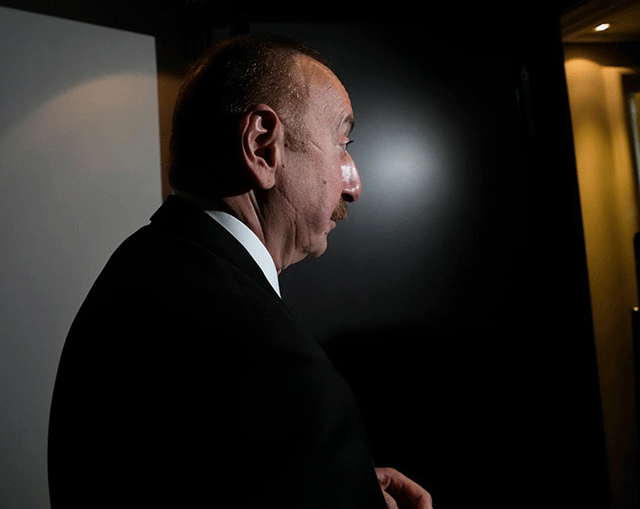by Michael Rubin
Both the United States and Israel continue to perceive Azerbaijan as a pillar for policy in the region.
The U.S. sees in Azerbaijan a majority-Shiite state willing to stand up to Iran. It serves as a listening station into the Islamic Republic of Iran and subtly undermines Iranian legitimacy by providing a model that does not depend on clerical rule or the repression of women. The Biden administration also tells its allies in Congress that it cannot withhold military aid from Azerbaijan despite that country’s aggression against Armenia because Azerbaijan is too crucial to the defense of Ukraine against Russia.
Read also
Israel, meanwhile, has long cultivated Azerbaijan as an entry point for intelligence operatives seeking to infiltrate Iran. Azerbaijan’s hydrocarbon resources became the basis for a weaponry-for-energy trade.
International relations are seldom static, however. Azerbaijan has grown steadily closer to both Iran and Russia in recent years. Like President Recep Tayyip Erdogan in Turkey, Azerbaijan’s President Ilham Aliyev seeks to profit from both sides of the dispute in Ukraine. He is also increasing his trade with Iran, even while amplifying supposed hostility between the two neighbors.
While Azerbaijan previously seemed like a good bet to American foreign policy realists when juxtaposed with an Armenia that was not particularly democratic and leaned toward Moscow, Armenia is now increasingly Western-oriented both in culture and policy and is solidly democratic. A new generation of Armenian youth has embraced civil society and hard-fought rights won in 2018. Over the same period, Aliyev has grown both more autocratic and erratic.
Too often, it takes the State Department years to acknowledge, let alone adjust to, changes among partners. This is why so many in Foggy Bottom continue to describe Turkey and Pakistan as pivotal states and allies, as if nothing has changed in the past few decades. The same pattern is now repeating with Azerbaijan. Officially, American officials describe it as secular, pro-Western, and stable. In reality, the Aliyev regime may be far weaker than it seems.
Thirty years of dictatorship, first by father Heydar Aliyev and now Ilham Aliyev, have made Azerbaijan a Potemkin country. Luxury shops line Baku’s corniche. High-end tourists and businessmen patronize name-brand luxury hotels. Mercedes, BMWs, and even Bugattis navigate the main boulevards. What caviar diplomacy participants and participants on various Azerbaijani junkets do not realize is how thin the veneer is. Poverty grows in Baku’s outskirts. While Ilham Aliyev and his inner circle may be worth billions, Azerbaijan’s per capita income is below that of Armenia, a country that has no oil or gas and suffers under a double blockade.
The Aliyev dictatorship rests on two pillars: Turkey’s support and BP (formerly known as British Petroleum). Aliyev and Erdogan both speak of “one nation, two states.” Turkey gives Aliyev intelligence and military backbone. Increasingly, however, the strength of ties rests upon the strength of relations between the two dictators. After Erdogan dies, there is no guarantee Turkey will continue bailing Azerbaijan out, especially given its own dire financial straits.
As Aliyev grows more aggressive and Azerbaijan descends into Turkmenistan and Eritrea levels of corruption and autocracy, BP will increasingly balance its ties to Azerbaijan with concerns about reputational damage. Any climate-driven pivot away from fossil fuels and the end of the Russia-Ukraine war would undercut Azerbaijan’s importance overnight. Already, much of the gas that Azerbaijan pipes to Turkey and the West originates in either Iran or Russia as Baku struggles to fulfill its commitments.
Nor is Azerbaijan’s military alone sufficient to ensure the country’s stability and influence. Iraq’s military, for example, was the world’s fifth-largest under Saddam Hussein. Calling Saddam’s bluff exposed Iraq as a paper tiger. While Aliyev points to the 2020 Nagorno-Karabakh War as a sign of Azerbaijan’s power, Azerbaijani troops fared poorly until Turkey intervened. What is gained unilaterally through military force can be lost just as quickly.
Dictatorships appear strong until the day they die. Azerbaijan’s facade may be shiny, but its foundation is rotten. To gamble on a lasting partnership with Azerbaijan seems an increasingly risky endeavor.
Michael Rubin (@mrubin1971) is a contributor to the Washington Examiner’s Beltway Confidential blog. He is a senior fellow at the American Enterprise Institute.






















































